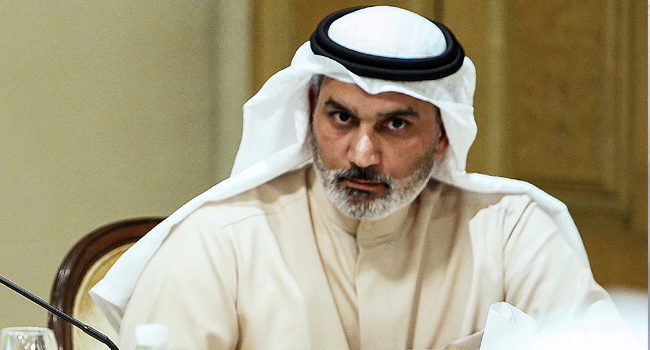The Secretary General of the Organisation of Petroleum Exporting Countries (OPEC), Haitham Al Ghais has said that many global Net-Zero policies have unrealistic targets and timelines and have little regard for developing countries with energy poverty.
In an article published on the official website of OPEC, Al Ghais argued against the demonisation of hydrocarbons, especially by developed economies in the guise of promoting zero-emission policies.
He further argued that calls against investments in fossil fuels do not take cognizance of how such would negatively impact global energy security.
He noted that fossil fuels, including crude oil, natural gas, and coal have made up over 80% of the global energy mix since the 1980s till date.
He wrote: “Many net-zero policies promoted unrealistic timelines or had little regard for energy security, affordability or feasibility. For example, an article from The Economist in November 2024 said that estimates for ‘transitioning’ ranged between $3 trillion and $12 trillion per year.
“Other policies disregarded material constraints, such as the clear difficulty of scaling up critical mineral production, or jeopardized the right of billions of people living in energy poverty in the developing world to affordable, reliable, sustainable, and modern energy, as per Sustainable Development Goal 7.
“Initial net-zero policies were also often accompanied by calls to stop investing in oil, gas, and coal, with scant regard for how this would impact energy security, given that these energy sources continue to make up over 80% of the global energy mix in 2025, as they have since the 1980s.”
Global oil demand to exceed 104 mb/d in 2025
The OPEC Secretary General noted that global oil demand is expected to exceed 104 million barrels per day in 2025, and if investments in global upstream operations are halted, there would be a deficit of 23 million barrels per day.
He said a halt in oil investments would negatively affect key sectors such as manufacturing, food production, healthcare, and infrastructure.
“OPEC estimates a huge oil market deficit of 23 million barrels per day (mb/d) by 2030 if investment in the global upstream industry stopped today. The ensuing volatility would severely hamper key sectors like transportation, emergency services, construction, manufacturing, food production, healthcare, and infrastructure, to name but a few.
“Suffice to say, net zero does not exist in a vacuum. It exists in a world where we expect global oil demand to exceed 104 mb/d this quarter – a new record – amid expected growth of 1.4 mb/d in 2025.”
He added that the key data points below make fossil fuels indispensable:
- Global natural gas consumption reached “an all-time high” in 2024, according to the IEA.
- A record-high global coal consumption of 8.7 billion tonnes was reported in 2024; and
- By 2050 global energy demand will rise by 24%, the global economy will more than double in size, and the global population is expected to reach 9.7 billion.
Al Ghais noted that OPEC is in support of Net-zero policies adding that top OPEC members including the United Arab Emirates and Saudi Arabia are among the world’s fastest-growing renewables market.
He said net-zero ambitions should be pursued without the demonization of fossil fuels.
What does this mean for Nigeria?
Many net-zero policies in the world have targets that range from 2050 to 2070. Nigeria has a target of achieving net zero by 2060.
Many Climate change analysts have said Nigeria’s net zero target is unrealistic due to economic challenges, a lack of funding for renewable energy sources, and a lack of a clear transition plan. However, others say that Nigeria can achieve its target through radical and intentional actions.
- Meanwhile, some stakeholders including a member of President Bola Tinubu’s Executive Council, have said that Nigeria should focus on utilizing its abundant fossil fuels to achieve energy security for its citizens.
- The Minister of State for Petroleum Resources (oil), Sen. Heineken Lokpobiri said Nigeria will maximise fossil fuel resources and disregard global campaigns for energy transition and reduction of carbon emissions.
- This suggests that President Tinubu’s administration may not be committed to meeting Nigeria’s net-zero target which was set under former President Muhammadu Buhari.
- Also, the Africa Energy Chamber has also urged African countries to determine what energy sources are best for achieving energy security in their countries rather than following blindly the advice and projections of international organisations who are advocating green energy.
What you should know
Net-Zero refers to achieving a balance between the amount of greenhouse gases emitted into the atmosphere and the amount removed or offset through methods like carbon capture, reforestation, or renewable energy projects.












